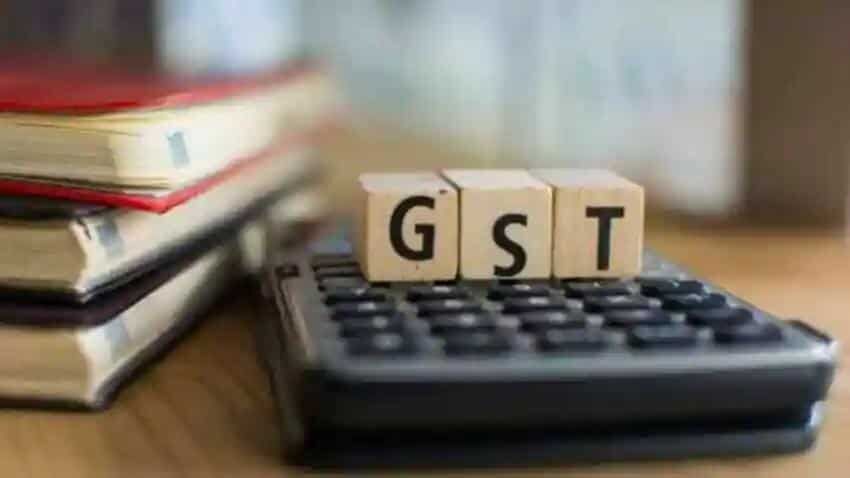Re-plugging GST
Shell firms cannot subsist on their own. They are the creation of a section of otherwise genuine business, looking for scopes to evade, without leaving footprint of their own

At the stroke of its 5th year of rollout, the 47th meeting of the GST Council brought the new tax regime back to contention. Far from the desired rationalisation and expected lowering of tax rates, there was significant upward revision for a host of items of common use. In an important departure, certain food items, in pre-packaged form, are now to be taxed.
Though restricting evasion has been cited as reason for such unusual step, but evasion management in GST has left much to be desired. The apparent growth in collection bears no indication to the extent of regular evasion taking place underneath.
GST was initially conceived to be non-intrusive tax system, driven more by technology-intensive governance re-engineering process, where market-driven checks and balance was relied upon to ensure compliance.
One may vividly recall Late Arun Jaitley boasting of new GST establishment — free from check post on provincial borders, sparing movement of goods from restrictive compliance regime through waybill and major irritant of physical checking.
But within a very short period of abandoning it, waybill was brought back. This time, its electronic variant, was simply an additional compliance measure, with little incremental value towards surveillance.
There were countless cases of waybills without movement of goods. On the flip side, those instances accorded authenticity to transactions, which were otherwise sham! Technology was used again in the form of attaching radio-frequency identification (RFID) tag on vehicles to check for their purported movement. Appreciating very little that it was not vehicle, but the goods contained, that mattered more.
No wonder, the faux pass left the clueless tax men scratching their head, much to the glee of the fraudsters.
When confused, it's time to turn to the basics. Indirect tax endures on self-sustaining compliance regime. GST being consumption-based indirect tax, where the continuity of value chain, right from production to consumption, is ensured by way of linking through tax credit. The impermeability of the tax credit system at provincial borders in the erstwhile regime could be successfully circumvented by turning the system from the earlier origin-based to destination-based and then introducing the path-breaking concept of Integrated GST (IGST) for inter-state transactions in a federal set up, to complete the circuit.
The linkage in the system was best secured by an automated transaction-matching exercise that necessarily connected seller-purchaser duo at any given transaction node. The originally conceived return process in GSTR-1, 2 and 3 was precisely designed that way. But the initial technical glitches made the authorities give up the well thought out process in a rather knee-jerk reaction and introduced GSTR-3B, which was essentially a self-declaration, having little scope for cross-matching.
The impact was cumulative and disastrous. The resultant snap in the chain literally threw the systemic checks to the winds. The entire system, thereafter, inevitably became the fertile ground for the fraudsters to sprout shell firms all over.
In retrospect, the same old game of title obfuscation of goods to divert it to the shell firms and create sham tax credit came roaring back. The forged title on paper was literally guided to make its round through the shell firms that dominated the grey portion of GST chain, while the real beneficiaries resided comfortably outside.
The intent of the fraudsters was loud and clear — engage the taxmen with shell firms to spare the real beneficiaries.
The fake tax credit was a veritable cheque written on government. It eats into the system from within. Such was the temptation that the credit once created, was never allowed to smother. Even at the point of consumption, forged invoices were used to bring back the fake tax credit element back to the system, in an almost greenhouse effect!
Recently, in response to an unstarred question in Parliament on the measures taken to restrict GST evasion, the Finance Ministry outlined steps which were mostly aimed to curb tax credit-related fraud. So, something was amiss in the system.
Analyses show that the moment title of goods on paper and its consideration get delinked, the innate systemic remedy crumbles softly. It then becomes easy conduit for dirty money in the system. Even on a larger, insidious scale, the scheme offers ways to compromise with the quality index of items of mass consumption. Investigations reveal that a large-scale fraud at a later stage often make an unsuspecting modest beginning with small shell firm connected with indirect tax!
So, any attempt to weed shell firms out is equally important as it is to regulate its germination. However, linking that to Aadhar may sound tech-driven, but certainly devoid of any realistic basis. For, shell firms are separated from real business but not from real entities.
Again, measures designed for the shell firms, when applied across the board, go counterproductive, raising resentment even amongst the abiding players.
Change in approach needs to be based on the basic premise that shell firms cannot subsist on their own. They are the creation of a section of otherwise genuine business, looking for scopes to evade, without leaving footprint of their own.
The remedy perhaps lies in taking away the confidence of market from the professed efficacy of the shell firm ecosystem. It is better done by hitting the beneficiaries hard than to go after the shell firms.
Indirect taxation has to make sure return of assessee reflects actual business. The onerous task for the tax men would therefore be to keep herding the real business to the chain. Use of business analytics to profile assessee in terms of their track record and putting the same across will add fidelity to the system.
Then only the stake holders will find it beneficial to remain in the chain than to reside outside.
The writer is Deputy Secretary (Technical), Finance Department, Govt. of West Bengal. Views expressed are personal



